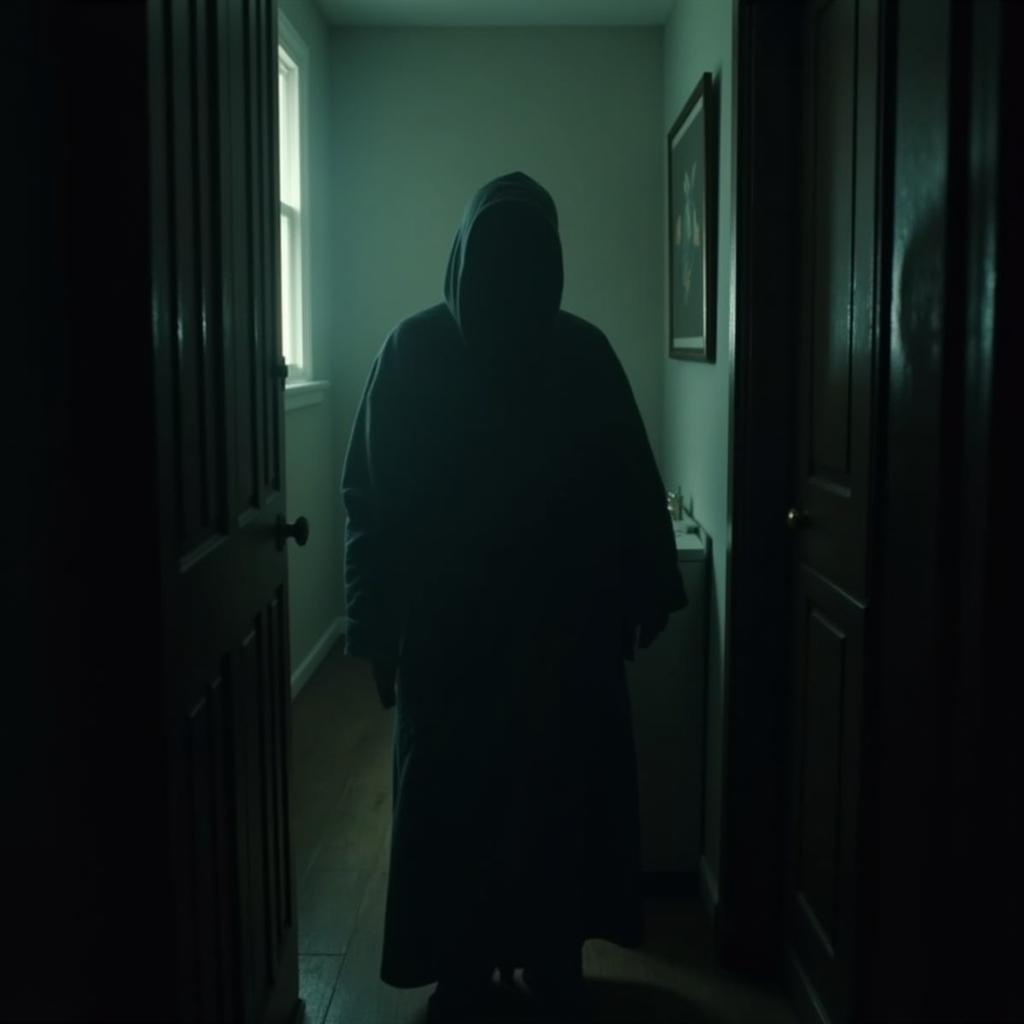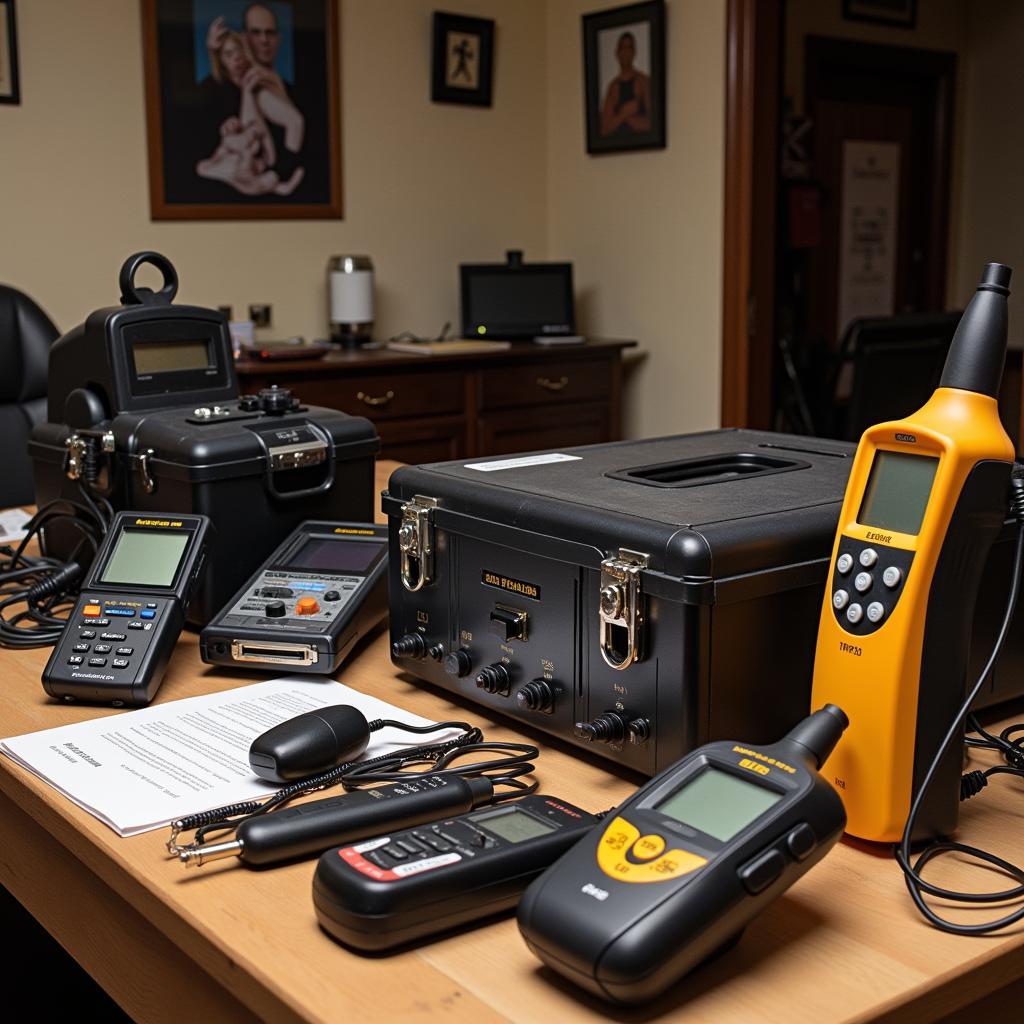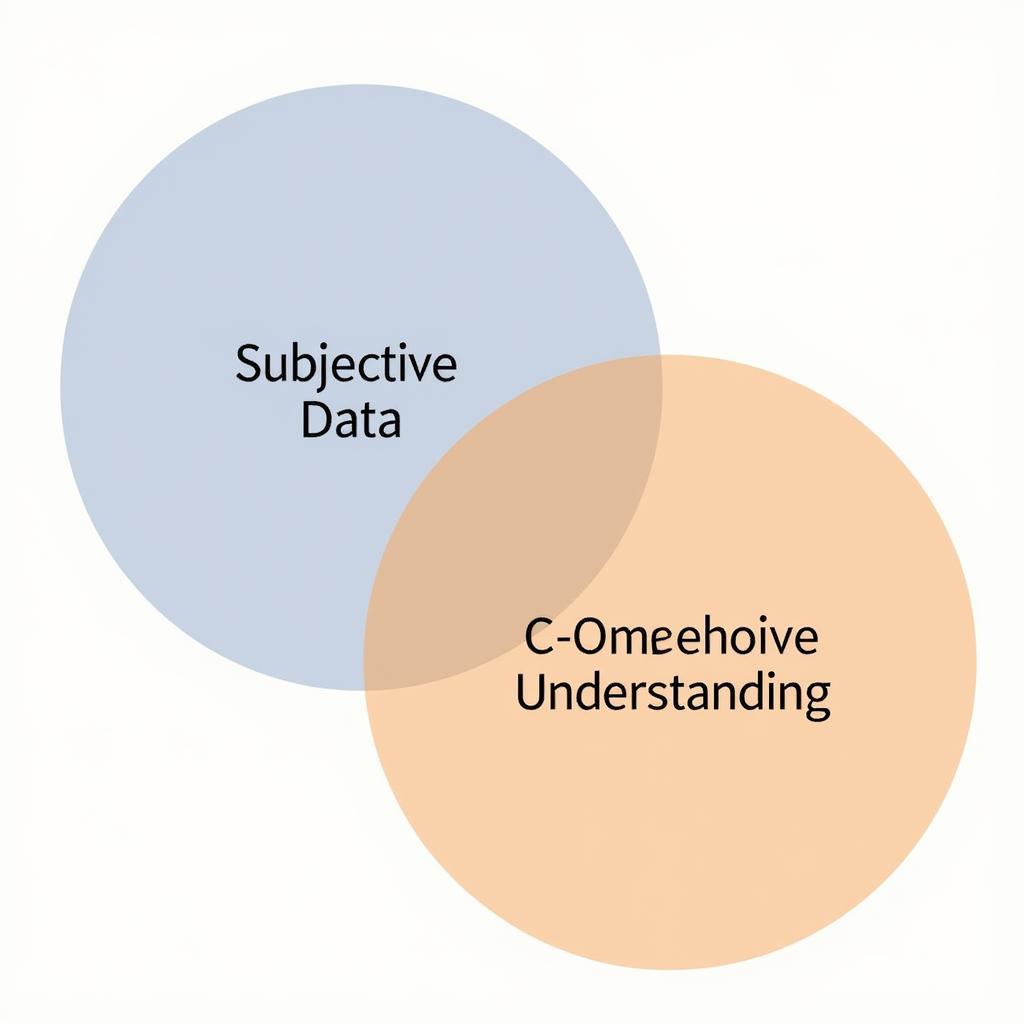The terms “subjective” and “objective” frequently arise in research, especially when discussing data. Understanding the meaning of subjective and objective data in research is crucial for designing studies, collecting reliable information, and drawing accurate conclusions. This article delves into the distinctions between these two data types and their implications for paranormal research.
Subjective Data: Delving into Personal Experiences
Subjective data stems from personal experiences, feelings, perceptions, and interpretations. This type of data is often gathered through self-reporting methods such as interviews, questionnaires, and personal journals. Since subjective data originates from an individual’s unique perspective, it can be influenced by personal biases, beliefs, and cultural background.
Let’s illustrate this with an example. Imagine interviewing witnesses of a purported haunting. Their descriptions of the events, emotional responses, and individual interpretations of what transpired would constitute subjective data. One witness might describe a feeling of dread, while another might perceive a visual apparition.
 Subjective Data in Paranormal Research
Subjective Data in Paranormal Research
While subjective data provides rich insights into individual experiences, it can be challenging to generalize or replicate. This is because subjective experiences are inherently personal and influenced by a multitude of internal and external factors.
Objective Data: Seeking Measurable Evidence
Objective data, in contrast to subjective data, relies on factual observations, measurements, and quantifiable information. This data type strives to eliminate personal bias and relies on external validation. Objective data collection methods often involve instruments, standardized tests, and controlled experiments.
Consider, for instance, an investigation of a location reported to have poltergeist activity. Using EMF meters to detect electromagnetic fluctuations, temperature sensors to record changes in the environment, and audio recorders to capture unexplained sounds would all yield objective data. These measurements are concrete and can be analyzed independently of personal opinions or beliefs.
 Objective Data Collection
Objective Data Collection
The Interplay of Subjective and Objective Data in Paranormal Research
The study of paranormal phenomena presents unique challenges, as it often involves elusive experiences that defy traditional scientific methods. While objective data is crucial for providing quantifiable evidence, subjective experiences remain invaluable in understanding the nature of these phenomena.
“In fields like paranormal research, where experiences are often personal and difficult to replicate, integrating both subjective and objective data provides a richer, more comprehensive understanding of the phenomenon under investigation.” – Dr. Emily Carter, Parapsychology Researcher
Imagine investigating a case of alleged psychic abilities. While objective data like statistical analysis of successful predictions or brain activity during psychic tasks is important, understanding the individual’s subjective experiences, such as their process of receiving information or their emotional state during readings, adds another layer of understanding.
Navigating the Subjective and Objective Divide
The key to effectively utilizing both subjective and objective data lies in recognizing their strengths and limitations. Researchers must carefully consider the type of data that best suits their research questions and employ rigorous methodologies to minimize bias and maximize accuracy. Triangulating data, a method of using multiple sources and types of data to validate findings, can be particularly helpful in paranormal research.
 Data Analysis in Paranormal Research
Data Analysis in Paranormal Research
For instance, when investigating a haunting, combining witness testimonies (subjective) with environmental readings (objective) and historical data about the location (objective) can create a more holistic picture of the phenomenon.
Conclusion: Embracing Both Perspectives
Understanding the meaning of subjective and objective data in research, especially in a field as complex as paranormal investigation, is essential for conducting meaningful and insightful studies. By acknowledging the value of both personal experiences and measurable evidence, we can move towards a more comprehensive understanding of the world around us, both seen and unseen.
Need help navigating the complexities of Paranormal Research? Contact us at research@gmail.com or visit our website at research realm grinder for more resources. Our team of experts is dedicated to providing guidance and support for all your research endeavors.